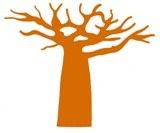My friend Noa gave a party yesterday, on January 20, 2009. She wanted to celebrate that auspicious day. She is convinced that with the inauguration of Barack Obama as the 44th president of the United States we are entering a new era of cultural development.
Noa is a senior mediator. She also writes political science fiction as a means for stimulating peoples imagination to engage in constructive dialogue. When during his election campaign Obama promised that he would also talk to the enemy, Noa felt encouraged to draft "The First Conversation between President Obama and President Ahmadinejad". (see her website on http://www.reconfigure.ch/ )
I share Noa's conviction. I did my own reading of Barack Obama. Both his books became a deep source of inspiration to me. In his first book, "Dreams from my Father", written in his early thirties, he describes how he grew up as a nomad between different cultures, how the many different exposures have formed his character, his search for identity, the need for community and social engagement. He also tells the story of his first visit to his father's homeland, Kenya. (That's where I found the beautiful baobab quote which we adopted for our New Year's greetings on this blog). In Obama's second book, "The Audacity of Hope", he focuses more on political themes as encountered during his first years as a US senator. The book contains a chapter on "values" and that's where I came across a passage that is most relevant to our concern as mediators. In a moving hommage to his mother, he tells how she showed him the value of empathy. Let me take the full quote:
"Like most of my values, I learned about empathy from my mother. She disdained any kind of cruelty or thoughtlessness or abuse of power, whether it expressed itself in the form of racial prejudice or bullying in the schoolyard or workers being underpaid. Whenever she saw even a hint of such behavior in me she would look me square in the eyes and ask, 'How do you think that would make you feel?' (...) It is not a question we ask ourselves enough, I think; as a country, we seem to be suffering from an empathy deficit. (...) I believe a stronger sense of empathy would tilt the balance of our current politics in favor of those people who are struggling in this society. After all, if they are like us, then their struggles are our own. If we fail to help, we diminish ourselves. (...) That's what empathy does - it calls us all to task, the conservative and the liberal, the powerful and the powerless, the oppressed and the oppressor. We are all shaken out of our complacency. We are all forced beyond our limited vision. No one is exempt from the call to find common ground." (p.66-68)
That's mediation culture, indeed. The development of empathy. The changing of perspectives. The search for what we have in common. And finally, in the best case, win-win solutions. To know that such values are now anchored in the top leadership is really good reason to celebrate.
I know an American NGO that has named itself "Search for Common Ground" . The name is the programme. All they want to achieve is in that name. When I first heard the name I felt a strong attraction. It was during the nineties when I worked with the Swiss Agency for Development and Cooperation (SDC). I was then in charge of its humanitarian aid division for Africa, confronted with the sufferings caused by complex emergencies in many parts of the continent. I often felt that in such crisis people were searching for more than just relief goods. So when I heard of "Search for Common Ground" I wanted to meet them to see if we could join hands for more meaningful relief and development work. We discovered a lot of common ground, and we combined our resources in various programs in Liberia, Burundi, Angola. We worked with young media professionals and artists to build bridges through inter-ethnic communications.
One key teaching that I learned from this partnership is the principle "understand the differences- act on the commonalities". It is guiding my mediation work.
If you would like to know more about "Search for Common Ground" go to their website on
So much for this auspicious day. Let's seize the new opportunities and carry on the search.




